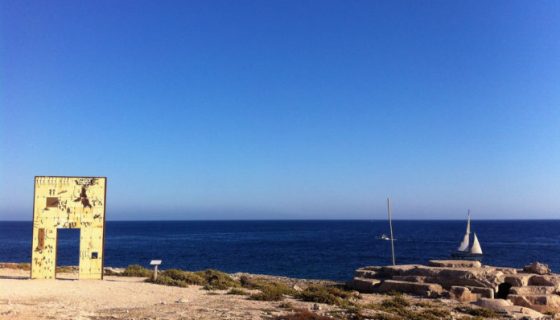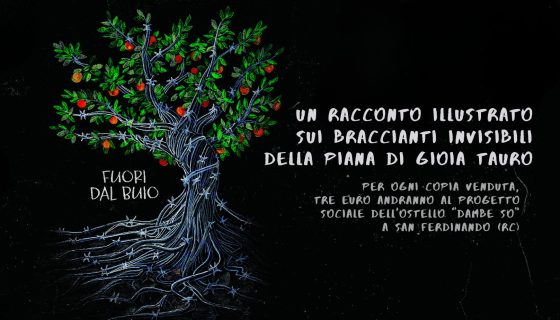- Mediterranean Hope - Federazione delle chiese evangeliche in Italia
- mh@fcei.it
Najma’s Eyes
by F. Piobbichi, MH’s operator in Lebanon and at the Migration Observatory in Lampedusa
Rome (NEV), February 1, 2017 – Beirut is usually noisy all night, but a few days ago, the city seemed to shut down like a large snail to which a child touched the horns. To scary the city it had been a suicide bomber who was then arrested in the centre of Hamra carrying eight kilograms of TNT in an explosive belt. When this happened, we were less than a kilometre away from the place of the possible attack. Once we knew it, we also went back home. Without fear, but with a bitter taste for the fate of this lively city. Last night, only the screams of a man who was next to my room broke the silence of Beirut. Every three hours all day, he shouted raising his hands to heaven- I was told that he cursed God and the world. As I watched his hands, I could understand the pain he felt because I had my head the stories of the Syrian refugees. Later, our neighbours told me that during the civil war he was a teacher, and one day a bomb was dropped on his classroom killing his pupils. Since then, he was no longer the same and began to scream. Every day, he shares his pain with his neighbours who listen to him in silence like he was a muezzin. He kept me awake all night without disturbing. We could hear him screaming as a warning against war and as an act of love towards humanity. That man made me understood the city of Beirut and the war that has upset it more than a thousand articles.
Beirut is a battle-scarred town. If you have the time to stop and pay close attention to its corners, you can find bullet holes printed on the city walls. Those holes, those wounds are still present in the social fabric of the city. Beirut is still in war but does not want to fight any more, even though its citizens are still divided by an invisible barbed wire that marks the mosaic of cultures and religions. Beirut is a place in which the hope and the curse of the Middle East go together to the rhythm of horns. Refugees have always flocked on Beirut: before the Armenians, then the Palestinians, and now the Syrians. In recent months, as Mediterranean Hope operators, we have met hundreds of Syrian refugees who have given us the chance to visit the ground in Beirut, damp rooms without windows, the narrow places in which they are forced to live. As we went further inside the city, they showed us the chains and barbed wire limiting horizon and hope. They told us of the exploitation at work, of the border fence that forces them into a miserable condition. Always under the weight of coercion for fear of being arrested as illegal and without any rights and protection, forced to work 12 to 14 hours a day with an hourly wage that hardly exceeds $ 2. Single women are the most vulnerable together with the children. My though are with them while writing these lines after landing in Rome yesterday morning with the humanitarian corridors.
I think about Najma that we brought to Italy and about her story and her future. Najma was one of them, and she has been reported by an association that takes care of Syrians in a vulnerable situation. Her name means “star”, but when we met her, her eyes were closed with no light. Not because of an illness or an accident, but on purpose and to survive. She closed her eyes when her husband was killed in front of her. She closed her eyes pretending being blind to cross the Syrian border. She closed her eyes when she was assaulted in a refugee camp. She also closed her eyes the day we met her, in fact, she had been enslaved by a man forcing her to work for free after threaten her in front of her children several times. These are the closed eyes of a strong woman, who had spent all her strength for the love of her children. We secretly talked to her and we saw her to slowly open her eyes while raising hope. When after the last conversation, we said that she could fly away we began to see the colour of her eyes. We secretly went to pick her up at nigh. Najma and her daughters were waiting for us on the doorstep holding their suitcases and feeling freedom. We brought them to Beirut in a protected place for a week, waiting to leave safe and sound. Najma and her children could take a stroll as free people along Beirut corniche and breathing new life. Her son, who had never seen the sea, the birds and the dogs, because for so long he had been locked in the house by his mother abuser, screamed and ran ignoring the barking dogs. It is in situations like this one that we understand that freedom is all. Yesterday, when we picked up them, her daughters recited an Italian poem learned by heart and translated by google. They asked us how long it would take to finally go to school and when we told them they would shortly learn Italian, they smiled clapping their hands for joy.
Two days ago, Najma landed Italy through the humanitarian corridors. She moved with her children proudly as a free woman. In Fiumicino, she walked with her beautiful eyes open. They were the colour of life. Once again, together with Najma we proved that humanity is stronger than war and fear.





